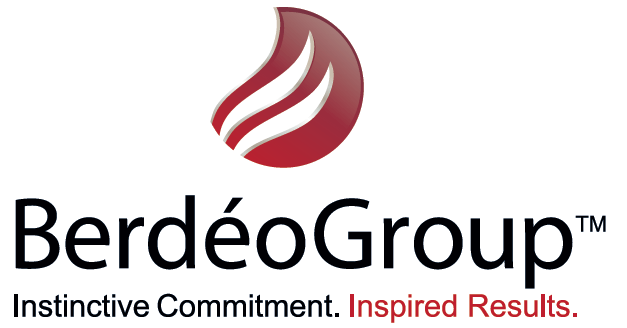Instilling fun in the workplace for stress reduction and professional longevity.
Can’t take a sabbatical? How about finding a playful company to reignite your drive at work and reduce your stress? Now more than ever, organizations are allowing—even mandating—their employees to play at work. Why the sudden change in strategy? While it seems a distraction from real work, incorporating playtime in the workday has been shown to have some great benefits. From reduced fatigue, boredom, and stress, to heightened creativity, productivity, and motivation, the drawbacks to play are hard to find when properly implemented.
As veterans of a Radical Sabbatical and keynote speakers on the topic of mental health, sabbaticals, and taking all your vacation every year, we fully appreciate the benefits that a slow trickle of play at work can have on one’s wellbeing and stability at work. And as executive coaching professionals using games to help clients meet their goals, we get to see which techniques improve employee satisfaction, wellbeing, and engagement. Changing the narrative from “Play doesn’t belong at work,” to “Play means a happy, energized and engaged team,” means a less stressed you both on the job and in your personal pursuits.
Take Valley Forge Fabrics, for instance, which we toured in addition to speaking with CEO Diana Dobin about play at work. Featuring a game room and slide, the office is both a high productivity and play environment for employees who “love to work hard and play hard,” according to Dobin. “We work long hours and have really high expectations for performance, so the fact that people can play amidst that creates a really unique culture of A-players,” she says. Today, Dobin claims Valley Forge is “like a different planet” with turnover down 17 percent since 2013.

Tech titans such as Google and Facebook brought this approach to the mainstream, and other organizations are clearly following suit. These companies offer bowling, ping-pong, wall climbing, arcade games, and more. They even allow employees to play away boredom from e-mailing to simply taking a break.
A true advocate of a more enjoyable workplace, psychiatrist and author Stuart Brown, M.D., asserts that play is a biological drive as necessary as sleep or nutrition for good health. As such, humans are wired to thrive through play throughout life. Brown does assert, however, that not all play is the same. It is the purpose of play that matters. Someone who casually plays blackjack at a casino is engaging in positive play; a gambling addict who constantly plays to win money is not.
Here are ways you might suggest your employer infuse more play in the work they ask of you:
1. Appoint a task force. A group of employees tasked with adding fun to the workday will experience cohesion feel truly valued. Formed in 2013, Valley Forge’s five-member Culture Committee was created to combat high-stress workdays and facilitate a more pleasant environment by organizing monthly events. Employees elect new members every six months to introduce new ideas and improve employee engagement company-wide. Dobin said the committee “was the right place to start and really grew from there. We assigned the time in the beginning, and then it just took over.”
2. Implement and schedule team-building play. Healthy competition, teamwork, and fun are inherent in cooperative games. Introducing fun group activities can spark innovative ideas as well as a brainstorm can. Games like A Shrinking Vessel, Zoom, and The Worst-Case Scenario promote entertaining and collaborative creative thinking. And for leaders who are reluctant to dive right into play, creating a schedule–designated days and times for playtime–is a terrific way to introduce it while maintaining structure and balance. It will also give employees something to look forward to and allow them to set aside time for it.
3. Fill the office with props for brainpower. Now, this doesn’t mean installing ladders between floors like Google or a slide like Valley Forge, but consider the benefits of equipment that is inherently playful and perhaps childish like Legos, scooters, or Pacman. And did you know that ping-pong increases concentration and stimulates brain function? Taking a 20-minute ping-pong break at 3 p.m. will enhance your productivity until it’s time to go home. So say goodbye to the afternoon slump.
4. Plan company events. These allow you to connect with your colleagues in a more meaningful way and form new bonds while strengthening existing ones. Fun events will also give you an experience of being valued and boost your morale. And they need not be elaborate to be effective—think bagel breakfasts or an impromptu dance party. To promote team-building, consider recommending an interactive event like a cooking class, improv workshop or volunteering.
5. Focus on fitness. Exercise reduces stress and enhances focus, productivity, memory, creativity, and mental health. Yoga, Pilates, or kickboxing class during lunch hours can be offered for a small fee. “We do find that our highest achievers are the ones that use our gym facilities the most,” says Dobin. Don’t have the office space for classes? Informal health competitions might be the answer. For example, you can vie against your fellow colleagues with Fitbits for taking the most steps in a week.
Everyone benefits from play in the workplace. Fun on the job makes you feel valued and correlates to higher productivity, better collaboration, and innovation. Play will boost the bottom line, too, so install a toy train set in the office, and all aboard!
This article originally appeared on Psychology Today Jul 24, 2018





